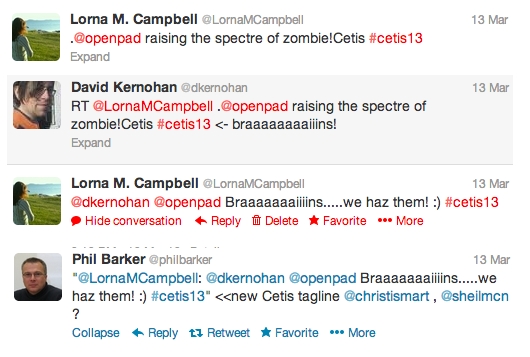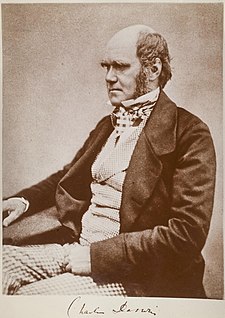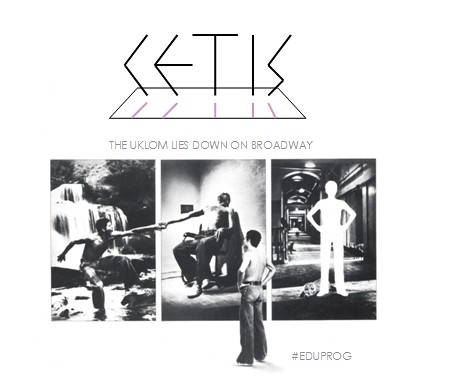My favourite twitter conversation from #cetis13…

I wish I had a picture of Scott in his zombie t-shirt!
My favourite twitter conversation from #cetis13…

I wish I had a picture of Scott in his zombie t-shirt!
Earlier today while listening to the livefeed of Learning Without Frontiers #lwf11 I had the misfortune to hear Katharine Birbalsingh presenting. Not since a recent Alt-C keynote have I seen such a vitriolic twitter backchannel. And in my opinion it was justified. Several people in my twitter feed missed the presentation but picked up on the backchannel and asked me to blog a summary of the talk. We’ll I’ve written a short summary but I’ve decided not to post it because that would just be providing publicity for opinions that I actually find quite objectionable. So if you want the summary let me know and I’ll send it to you. I don’t really want such nonsense on my blog.
Dan Stucke has blogged a short sumamry of the presentation on his blog here.
Owen Stephen’s has written a helpful post which makes a very useful contribution to the debate regarding the interpretation of Tim Berners Lee’s Linked Data Design Issues. See my earlier post for a summary of the debate. With all these attempts to clarify the ambiguity I couldn’t help being reminded of the infamous Pirate Code from Pirates of the Caribbean:
“And thirdly, the code is more what you’d call “guidelines” than actual rules. Welcome aboard!”
Sorry, couldn’t resist it ![]()
Or the strange case of Drs E. Embuggerance and H. Feisty.
This has already been reported on several other blogs but it’s too good not to share again. Looks like Google Scholar needs to work on its automatic metadata generation algorithm:
Embuggerance, E., and H. Feisty. 2008. The linguistics of laughter. English Today 1, no. 04: 47-47.
This curious incident was originally reported by Stephen Chrisomalis and subsequently picked up by Language Log. The comments on the latter post are particularly entertaining. Mark Liberman helpfully provides Google Scholar’s BibTex citation
@article{embuggerance2008linguistics,
title={{The linguistics of laughter}},
author={Embuggerance, E. and Feisty, H.},
journal={English Today},
volume={1},
number={04},
pages={47–47},
year={2008},
publisher={Cambridge Univ Press}
}
And goes on to suggest
“Perhaps we should continue the tradition of metonymic names for new linguistic natural kinds, and use embuggerance for cases where the automatic tagging of entities and relations goes astray.”
Over on Stephen Chrisomalis blog the comments have taken a rather different turn and degenerate into a rather thoughtful discussion of the relative merits of Google Scholar and JSTOR and automatic metadata generation vz human indexing. One commentor, Laughingrat, is appalled that any academic would even consider using Google scholar:
“…unless your college or university is extremely underfunded, the school library should have access to high-quality databases which contain records indexed by information professionals rather than unqualified hirelings or, worse, computers.”
Another commentor, Dale, puts forward a robust argument in favour of Google Scholar in particular and automatic metadata generation in general:
“Many in libraries and academia are keen to point out all of the warts in Google Scholar, but are less keen to be so critical of the databases for which they pay. That the MLA Bibliography, for example, is years behind in indexing scores of journals, and has incredibly poor coverage in many non-English languages (despite the International boast in its name) is a little known or explored fact in libraries. Other fee-based databases evince similar flaws (Library Literature, ironically, is one of the worst), but it isn’t nearly as much fun to pick on them as it is to shellac Google.”
The last words also has to go to Dale:
“What it comes down is machine indexing vs. human indexing. I cannot get the image of John Henry out of my mind when I think about this matchup. I think the human indexers can only win by extreme effort, and we all know what happened to poor John.”
Amen to that!
Damn few and they’re aw deid!
Famous deid people namechecked at #cetis09

Charles Darwin

Clarence Darrow

Marshall McLuhan (second year running!)

Les Dawson
Aldous Huxley

William Shakespeare

Joseph Schumpeter

Stieg Larsson
Famous deid programmes….
The MAC Initiative


And a couple of deid bands…

The Clash

Lindisfarne (thanks Oleg!)
Several people have already picked up on this on twitter. Meet della from Dell for all you girlies needing to “simplify your life with technology”.

“Tech tips” include:
Get healthier: Use your mini to track calories, carbs and protein with ease, watch online fitness videos, map your running routes and more.
Eat better: Find recipes online, store and organize them, and watch cooking videos.
Chill out: Stressed? Your mini can be your meditation buddy as you take mini-breaks throughout your day (schedule them, with reminders, on your calendar). You can find free guided meditations, download meditation podcasts, watch yoga videos, create soothing slideshows of images and music and even bliss out to Visible Earth images courtesy of NASA.
Travel smarter: …. entertain you in airports, trains and buses.
All is not in vain though, here’s the science:
Stay in the clouds: “Cloud computing” is a buzzword for what your mini does best: save money and time by using free online apps for everything you need-meaning you don’t need to buy, install or update a bunch of space- and memory-hogging applications on your computer itself. No matter what operating system you have, it’s easy to find free and low-cost streaming media and online apps. Any time you need to transfer data to or from your mini, you can stream it, port it via removable SD cards or USB flash drives or plug in an external drive.
Words fail me. Ada Lovelace must be spinning in her grave.
Qotd from two year old daughter in response to seven year old boy:
7 year old boy: “Rhuna you’re a genius!”
2 year old daughter: “I’m not a genius, I’m a girl.”
Girl being one step up from genius obviously…. ![]()
Famous deceased name checked at cetis08.

Plato

Herbert Marcuse

Martin Heidegger

Jean Francois Lyotard

Vladimir Ilyich Lenin

Josef Stalin

Peter Kropotkin

Marshall Mcluhan

Cozy Powell
Without a doubt the zenith of the recent CETIS08 conference has to be the evolution of a new concept in educational technology – eduprog.

(copyright: it’s Phil’s fault)
Eduprog crystalised from the domains of metadata, repositories, educational technology and unusual puddings and is set to challenge edupunk as the real underground movement of the moment. Seizing the zeitgeist by the scruff of the neck the term was coined by Peter Obee and formalised by andypowe11
suggest we need to get in the habit of writing eduProg as #eduprog if we seriously want the concept to challenge #edupunk
This genre defining movement perfectly reflects a domain that generates questionable “concept” specifcations of baroque complexity (cf. FRBR, IEEE LOM) and application profiles and reports the equivalent of extend guitar solos (cf. DC Description Set profile & UKLOM Core, from the eduprog back catalogue). Phil Barker has recently confirmed that the forthcoming LMAP report will be published with a gatefold sleeve.

(copyright: David’s fault this time)
Eduprog has spread over the twittosphere like a gold lurex cape and has already generated considerable sage discussion and chin stroking.
Some have been inspired, others critical
#eduprog much better reflects the true state of education technology- long-winded, self-indulgent, boring standards-making
“long winded and self-indulgent” or virtuoso boundary pushing redefining forms and developing new techniques?
Recalling last night’s discussion of the potential for a prog concept album based on FRBR, double album, one side per Group 1 entity
the AV equivalent of restringing a 12 string electric lute going on here…
Last word has to go to one who was there at the dawn of eduprog:
I’ll get me cloak….

MIMAS totally looks like the Death Star
Mimas being one of the moons of Saturn obviously….
http://totallylookslike.com/2008/09/05/mimas-totally-looks-like-the-death-star/